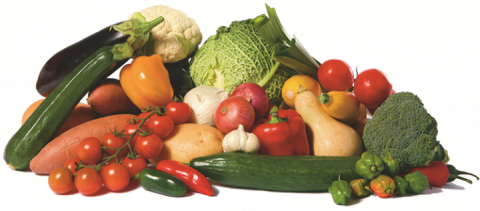
Heart related diseases including hypertension, heart attack and stroke, among others are the leading cause of death worldwide. With increasingly changing lifestyle more people are at risk of these illnesses yet a vast majority of them can be prevented by proper nutrition and lifestyle. “The risk factors for cardiovascular diseases are obesity, diabetes, hypertension, physical inactivity, tobacco smoking and hereditary factors,” says Winnie Nzioka, 21, a registered nutrition expert based in Embu Level V Hospital, Kenya. “Eating the right kinds of foods in the right amounts can help keep you free from heart diseases.”
1. Fats
“Whereas fats are important in body growth, eating fat in excess of 35% of total daily food intake makes you at risk of heart diseases whether you are eating good or bad fat,” says Winnie.
“Elevated blood lipids (fats) have a correlation with cardiovascular diseases. A diet high in saturated fats such as cheese and trans-fats found in fatty foods such as margarine, baked foods and fast foods leads to increased level of cholesterol which predisposes one to heart disease.”
She recommends that one eats, “heart healthy fats which are the unsaturated and poly-saturated fats. These fats can be found in fish, nuts, seeds and vegetables. In the supermarket they can be found in olive and corn oils.”
“One should also eat essential fatty acids such as omega 6 and 3 which the body cannot produce but can be gotten from other sources.”
2. Sodium
Sodium is an essential element in the body, yet consumption of excess sodium can lead to development of hypertension. “It is estimated that if one reduces sodium intake by 3 gram per day, one can reduce the likelihood of developing heart diseases by 22%,” says Winnie.
“Processed foods such as sausages, hamburgers, bacons, pizza, canned foods and commercial sauces such as tomato sauce, mayonnaise have high sodium content and should be taken with moderation. Table salt should be eaten while cooked and used sparingly.”
3. Fruits and Vegetables.
“Eating a diet rich in fresh fruits and vegetables is recommended since they contain components that protect against heart diseases and stroke. They have cardio-active components such as Vitamin C, folic acid, anti-oxidants flavanoid and carotenoids which remove free radicals which are responsible for causing diseases,” says Winnie.
“Fruits and vegetables also have water soluble fiber of which consumption is recommended in high amounts since fiber promotes removal of cholesterol from the body. These fibers can be found in foods such as dried beans and cereals, bananas, oranges, and pawpaw.”
4. Carbohydrates.
“If your carbohydrate portions are increased, you stand a higher chance of developing diabetes which leads to heart disease,” she says. One should also “snack in the right way”. Such can involve eating fruit and vegetable salad.
Other lifestyle measures one should observe include avoiding tobacco smoking. “Tobacco smoking increases deposition fatty deposits in the arteries leading to hypertension,” she says.
Exercise is highly recommended. “Physical inactivity leads to obesity which leads to slowing down of important body processes such as insulin regulation hence leading to diabetes and hypertension.”
“Frequent medical checkups are necessary. These should include measurement of cholesterol level and Body Mass Index, BMI and the waist circumference,” she advises. “Persons with cardiovascular disease should consult a trained health professional to optimize their nutritional care.”